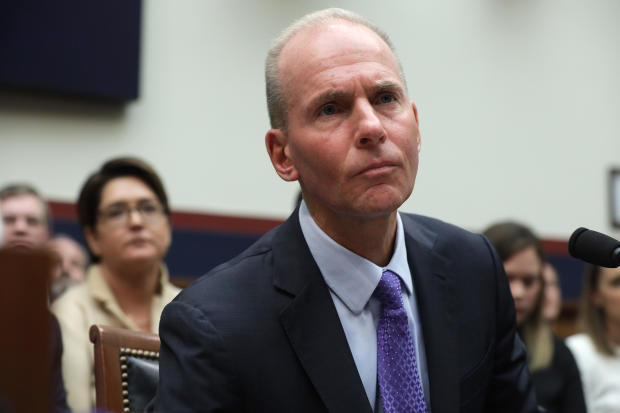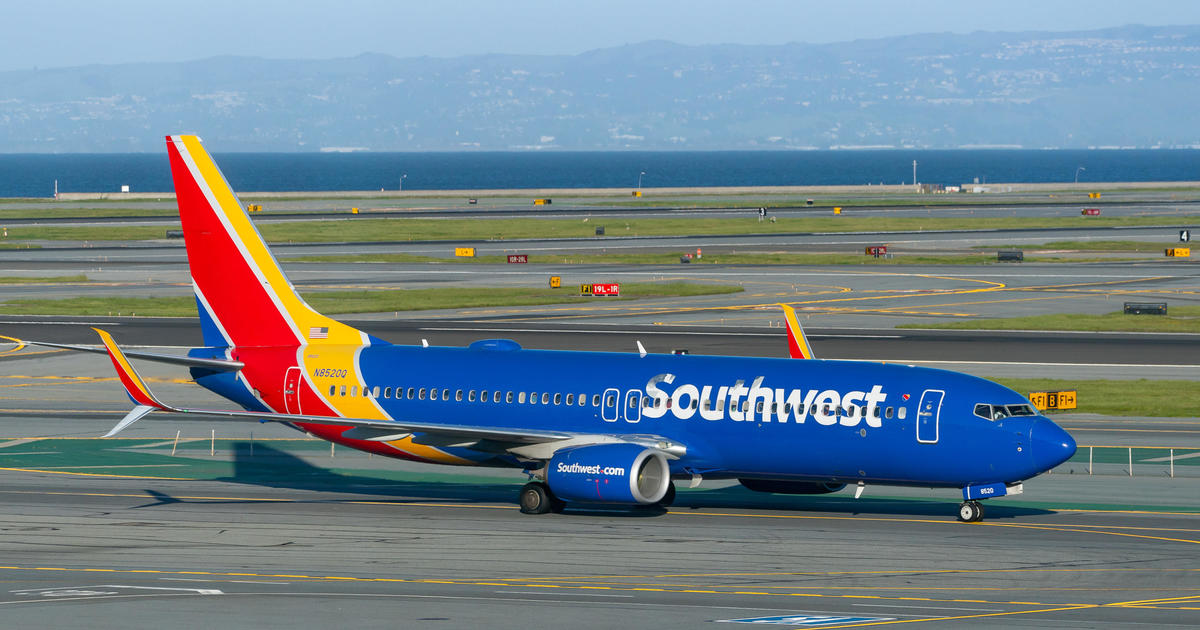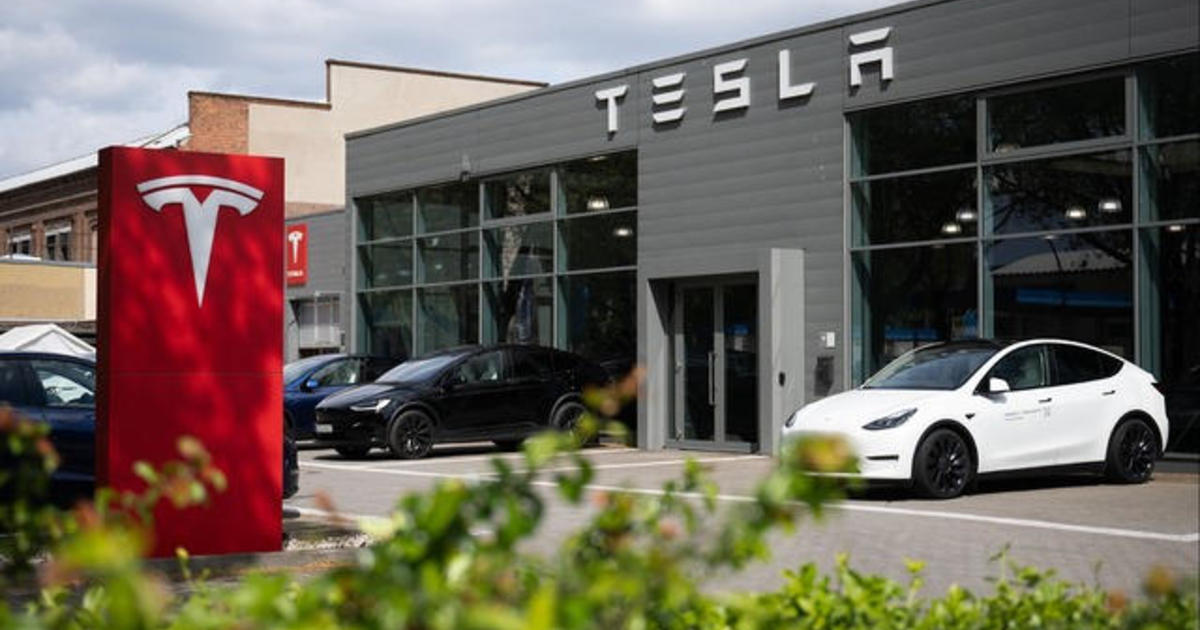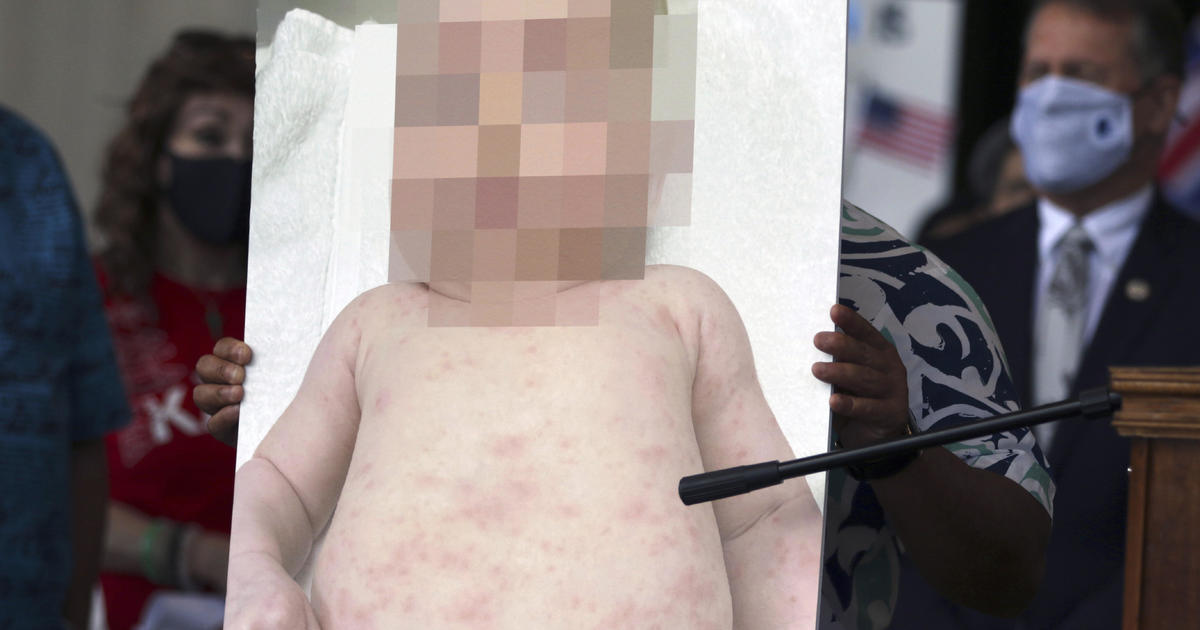Boeing's CEO faces second day of questioning from lawmakers
Boeing CEO Dennis Muilenburg on Wednesday faced a second straight day of congressional questioning on the aircraft maker's role in two deadly crashes involving its 737 Max plane. House lawmakers focused on evidence that Muilenburg and other Boeing executives were warned about safety issues connected to the jet before the first crash last October.
Representative Albio Sires, a Democrat from New Jersey, read a worker email sent to the head of Boeing's 737 production team in mid-2018 that claimed high production goals were straining workers and increased the potential for mistakes. "For the first time in my history with Boeing I would be hesitant about putting my family on a Boeing airplane," wrote the veteran Boeing employee.
Muilenburg said he only became aware of the worker's concerns after the Lion Air 737 Max crash October 29. He said the 737 production line was working at a "high rate" at the time and the issues raised by the now-retired employee had been investigated and addressed.
Nonetheless, when pressed Muilenburg said the company never cut back its production of the aircraft even after being made aware of the worker's concerns.
Members of the House Committee on Transportation and Infrastructure also zeroed in on why Boeing decided to only have one sensor on the outside of the plane, with no back-up, to alert pilots when the angle of the aircraft was off. In addition, they asked why the plane's safety system only gave pilots four seconds to react to take back control of the plane if a malfunction occurred.
While acknowledging that Boeing planned to make fixes to the craft, some lawmakers also questioned why the company took so long to come to that conclusion.
"Why wasn't that the way from day one," asked Representative Peter DeFazio, an Oregon Democrat. "If you can do it now, why couldn't you have done it on day one."
Muilenburg responded as he had in his appearance before a Senate committee on Tuesday, apologizing to family members of the 346 passengers who died in crashes and admitting that mistakes were make.
"We would do it differently if we knew what we know today," Muilenburg said Wednesday.
$15 million in pay and bonus an issue
Several committee members pressed the CEO to make more changes in the aftermath of the crash, including giving up some of the $15 million in pay and bonus he received last year, out of $23 million in total compensation for 2018.
"These people are gone. You're on. Is anybody at Boeing working for free or taking a pay cut?" Steve Cohen, Democrat of Tennessee, hammered the CEO, who tried to deflect the question.
"You're not taking a cut in pay at all?" Cohen continued. "You're not accountable, then."
Unlike Tuesday's hearings, a number of lawmakers seemed to deflect some of the blame for the crashes away from Boeing and onto the planes' pilots, as well as safety standards in other countries. Sam Graves, a Republican from Missouri, kicked off his questioning by faulting the pilots of the Ethiopian Airlines plane that crashed in March.
"The Ethiopian pilots were going too fast," Graves said. "It was like they were going down the road at 70 miles per hour, and they try to open the door. You can't get that door open. That's the analogy I have been using."
This week's hearings are taking place one year after a 737 Max crashed off the coast of Indonesia and more than seven months after a second crash in Ethiopia.
In the hearing on Tuesday, Muilenburg acknowledged for the first time that he had been briefed, prior to the second crash, of messages from a test pilot who had raised safety concerns about the 737 Max. Boeing said it gave those messages to the Department of Justice in early 2019, but only alerted the Federal Aviation Administration and Congress to the existence of those messages in the past few weeks.
Muilenburg's Tuesday testimony was the first by a Boeing executive since the crashes.
"We have made mistakes, and we got some things wrong," he said.
Some members of the Senate Commerce Committee cut Muilenburg off when they believed he was failing to answer their questions about a key flight-control system implicated in both crashes.
"Those pilots never had a chance"
Boeing successfully lobbied regulators to keep any explanation of the system, called MCAS, from pilot manuals and training. After the crashes, the company tried to blame the pilots, said Senator Richard Blumenthal, Democrat from Connecticut.
"Those pilots never had a chance," Blumenthal said. Passengers "never had a chance. They were in flying coffins as a result of Boeing deciding that it was going to conceal MCAS from the pilots."
Senator Tammy Duckworth, D-Illinois, said Boeing "set those pilots up for failure" by not telling them how the response to a nose-down command on the Max differed from previous 737s.
"Boeing has not told the whole truth to this committee and to the families and to the people looking at this ... and these families are suffering because of it," a visibly angry Duckworth said as she pointed to relatives of passengers who died.
Muilenburg denied that Boeing ever blamed the pilots. Several times this spring and summer he said the accidents were caused by a "chain of events," not a single factor. The comments were widely seen as deflecting blame, including to the pilots.
The CEO told senators Tuesday that Boeing has always trained pilots to respond to the same effect caused by an MCAS failure — a condition called runaway trim — which can be caused by other problems.
Muilenburg and Boeing's chief engineer for commercial airplanes, John Hamilton, spent about 80 minutes at the Senate witness table. The committee then heard from two safety officials who helped shape reports about the Boeing plane.




